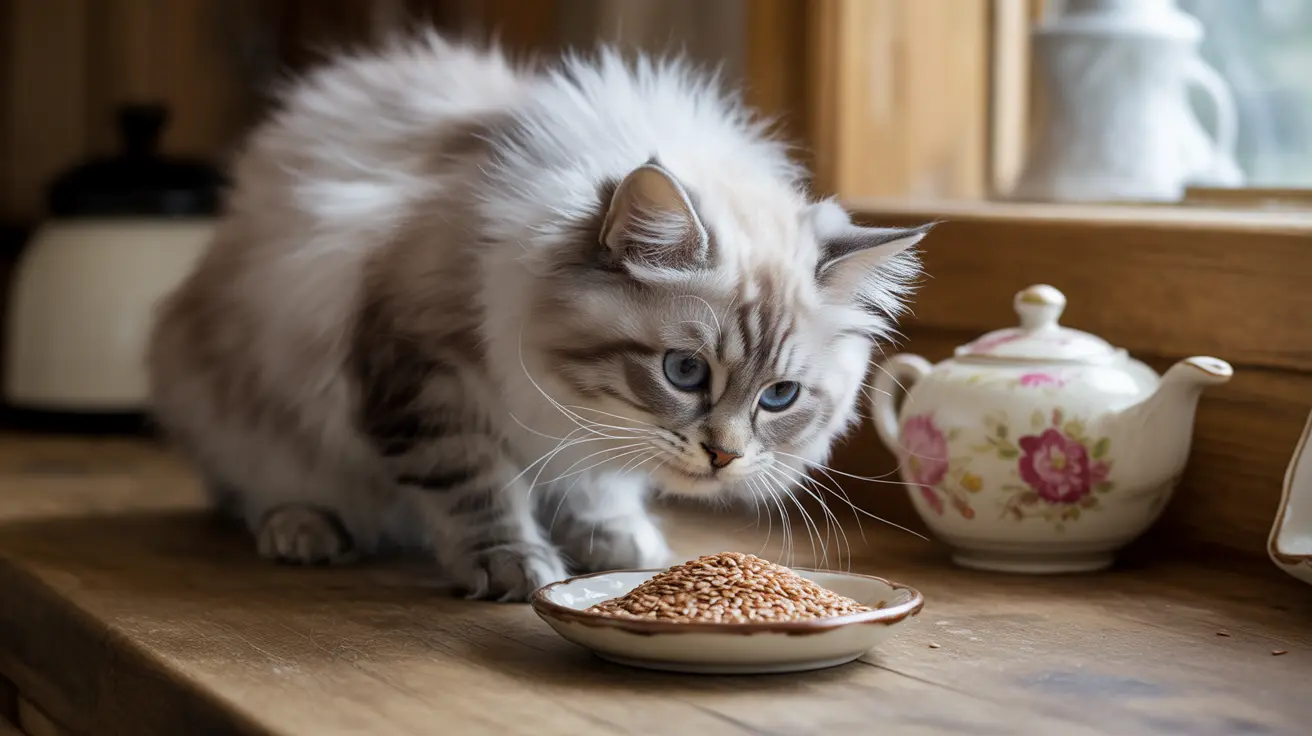Many pet owners are increasingly interested in natural supplements to enhance their cats' health, and flaxseed has emerged as a topic of discussion. If you're wondering whether cats can have flaxseed, the answer is yes - but with important considerations about safety, form, and dosage.
In this comprehensive guide, we'll explore everything you need to know about feeding flaxseed to cats, including its benefits, potential risks, and proper administration methods backed by scientific research.
Understanding Flaxseed and Its Forms for Cats
Flaxseed comes in several forms, but not all are suitable for feline consumption. Ground flaxseed and flaxseed oil are the most beneficial forms for cats, as they allow for proper nutrient absorption. Whole flaxseeds should be avoided since cats cannot properly digest them, and they'll likely pass through their system without providing any nutritional benefits.
The Nutritional Benefits of Flaxseed for Cats
Flaxseed offers several potential health benefits for cats when properly administered:
- Rich in alpha-linolenic acid (ALA), a plant-based omega-3 fatty acid
- Contains beneficial dietary fiber
- Provides antioxidants and lignans
- Offers essential minerals like magnesium and manganese
However, it's important to note that cats have limited ability to convert plant-based ALA into the more beneficial EPA and DHA forms of omega-3s.
Safe Administration and Proper Dosage
When introducing flaxseed to your cat's diet, follow these guidelines:
- Start with minimal amounts (1/8 teaspoon of ground flaxseed or a few drops of oil)
- Mix thoroughly with wet food or sprinkle on dry food
- Store flaxseed oil in the refrigerator to prevent rancidity
- Monitor your cat for any digestive changes or adverse reactions
Potential Risks and Precautions
While generally safe, flaxseed supplementation can pose certain risks:
- Overconsumption may lead to digestive upset
- Unripe flaxseeds contain toxic compounds
- Some cats may have individual sensitivities
- Not suitable for cats with certain medical conditions
Veterinary Guidance and Professional Advice
Always consult your veterinarian before adding flaxseed to your cat's diet, especially if your pet has existing health conditions. Your vet can provide personalized dosage recommendations and help monitor your cat's response to the supplement.
Frequently Asked Questions
Is flaxseed safe for cats to eat, and in what form should it be given?
Yes, flaxseed is safe for cats when given in ground form or as oil. Whole flaxseeds should be avoided as cats cannot digest them properly. Always use fresh, properly stored products and introduce them gradually.
What are the health benefits of feeding flaxseed or flaxseed oil to cats?
Flaxseed provides omega-3 fatty acids (ALA), fiber, antioxidants, and minerals. These nutrients may support coat health, digestion, and overall wellness, though benefits are most pronounced when used as part of a balanced diet.
Can feeding flaxseed to cats cause any digestive problems or allergic reactions?
Yes, some cats may experience digestive issues like diarrhea or loose stools if given too much flaxseed. Allergic reactions are rare but possible. Start with small amounts and monitor your cat's response.
How much flaxseed or flaxseed oil should I add to my cat's diet safely?
Begin with 1/8 teaspoon of ground flaxseed or a few drops of oil per day, mixed into food. Adjust the amount based on your cat's size and response, always following veterinary guidance.
Why is fish oil considered better than flaxseed for providing omega-3 fatty acids to cats?
Fish oil contains ready-to-use EPA and DHA omega-3s, while flaxseed contains ALA, which cats must convert. Since cats are inefficient at this conversion, fish oil provides more direct benefits for feline health.
Conclusion
While cats can safely consume flaxseed when properly prepared and administered, it should be viewed as a supplement rather than a dietary necessity. For optimal results, always choose high-quality products, start with small amounts, and maintain regular communication with your veterinarian about your cat's dietary needs.






